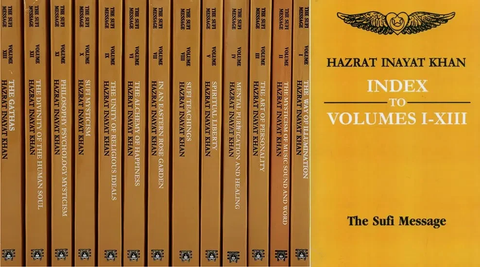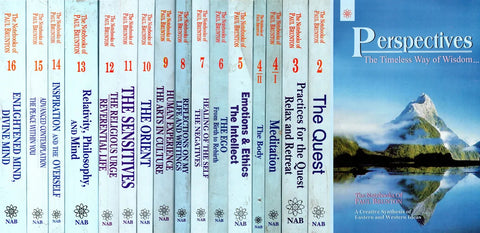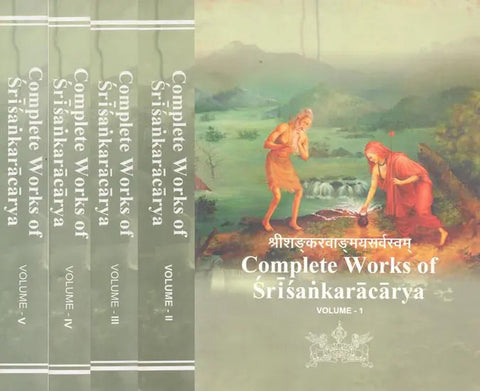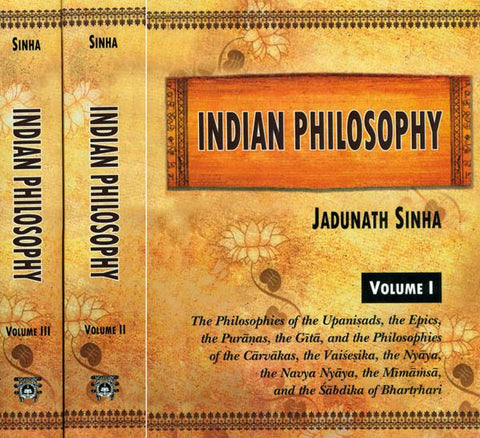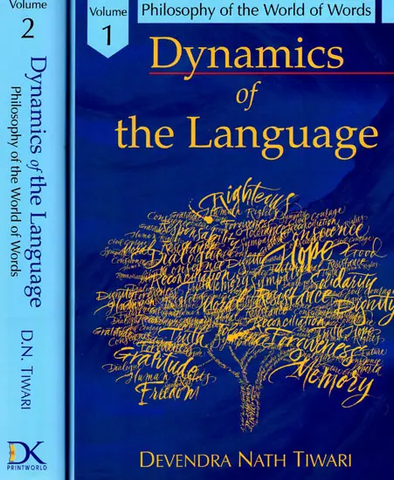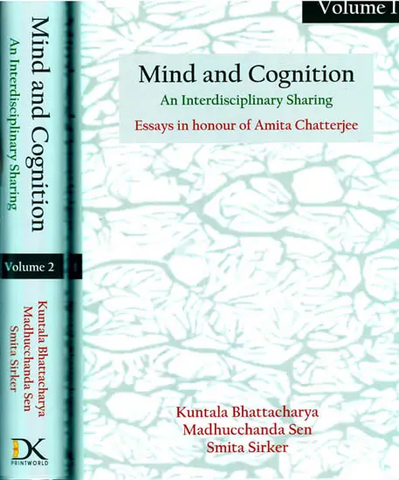Your cart is empty now.
Carvaka is the materialistic system of thought propounded by the ancient philosophers of India. The Carvaka system of philosophy has been much criticized and even ridiculed since the ancient times as the Carvakas have been dubbed as atheists and hedonists. This work is an attempt to reveal the fundamentals of Carvaka philosophy, and its epistemological, metaphysical and ethical concerns. Beginning with the origin and development of Indian materialism, it addresses the controversial and disputed issues regarding Carvaka philosophy on the basis of a profound study of the original sources on the subject and by referring to modern researches on it. It highlights the contributions of the Carvakas in the furtherance of moral and philosophical thoughts and their uniqueness in many respects, such as the Carvaka School being the only one among ancient Indian philosophical schools to accept only one pramana — perception. The Carvaka system is compared and contrasted with other systems of ancient Indian philosophy for the purpose. The book is praiseworthy in its attempt to present its findings in a logical manner.
The book will interest scholars and students of ancient Indian philosophy as well as general readers who are keen to understand ancient Indian philosophy.
After obtaining a brilliant first class in M.A. (Buddhist Studies) in 2001 from the University of Jammu, Dr Bhupender Heera (b. 1976) earned his PhD degree from the same University in 2005 on the topic “The Impact of Buddhist Thought and Culture on Socio-Religious Life of the Asian People with Special Reference to Sri Lanka, China and Tibet”. In the following years he obtained his M.A. in Philosophy from Gurukula Kangri Viswavidyalaya, Haridwar, and later earned his second PhD in philosophy in 2010 from the same university. Dr Heera has, thus, the unique distinction of having double M.A. with brilliant first class both in Buddhist Studies and Philosophy and double PhD in the same subjects. He has also to his credit Three-years Diploma in Architectur Engineering. Presently Dr Heera is teaching philosophy in Education Department of the Government of Jammu and Kashmir.
CARVAJCA is the materialistic system of Indian philosophy. This school appears as a note of discord in the symphony of Indian philosophy. On account of the tendency of this school towards gross materialism, atheism, individualistic hedonism, and radical selfishness, it has become an object of ridicule. It is a great irony that there are many misgivings about this school and there are many sweeping remarks condemning this system as crude hedonism. Even the meaning of “Carvaka” and “Lokayata” has been explained by different scholars in different ways. There is also a diversion of the meaning regarding their origin. Quite often the Carvakas are dubbed as nastikas. This system is classed as heterodox not because of its gross materialism and atheism, but because of its outright rejection of the authority of the VEdas. The Samkhya system is naturalistic and atheistic and the Purva-Mimamsasystem of Jaimini is supposed to be atheistic and yet those systems are classed as orthodox because they accept the authority of the Srutis.
Carvaka, after whose name this school is so called, is said to be the chief disciple of Brhaspati. According to another view, Carvaka is the name of the founder of this school. According to still another view, the word “Carvaka” is not a proper name, but a common name given to a materialist, and it signifies a person who believes in” eat, drink and be merry” (the root carv means to eat), or a person who eats up his own words, or who eats up all moral and ethical considerations, or a person who is “sweet-tongued” (caruvak) and therefore whose doctrine is superficially attractive. Another synonym of Carvaka is Lokayata which means a commoner and therefore, by implication, man of low and unrefined taste. Nastika-Siromani or an “arch heretic” is another name of materialist. In Ramayana, they are called “fools” who think themselves to be wise and who are experts in leading people to doom and ruin. Reference to them is also found in Mahabharata and Manu-Sathhiti7. Regarding the relations of Carvaka to Lokayata, scholars have different opinions. According to Max Muller, Carvaka is represented as teacher of Lokayata. He is treated as a historical individual to whom Brhaspati or Vacaspati delivered his doctrine. S. Radha-krishanan, along with Macdonell, holds that Carvaka is the name of the founder of Lokayata system. S.N. Das Gupta explains the word Carvaka in a different way. He says Carvaka is not a historical individual, Le Vallee Poussin mentions Carvaka as the reputed founder of the sect. N.M. Barua holds the view that the later Sanskrit works ascribe materialistic utterances to a mythical figure to whom they give the name of Carvaka. All this appears to be conjectural. To settle this dispute and uncertainty a fresh research may be of great value to dispel all the misgivings about Carvaka.
No original work of this school is extant with the single exception of a much later work, Tattvopaplavasimha of Jayarasi Bhatta published by the Oriental Institute of Baroda in 1940. It is therefore very difficult to have a correct idea of it. The Barhaspatya Sutra which is said to have contained the original tenets of Carvaka school has unfortunately perished. Our chief sources of information about Carvaka are given in the works of other schools. But this is done only to refute materialism. So we don’t get a true picture of this school. In the second Act of Prabodhacandrodaya, Krishna Mishra sums up the teachings of materialism thus: “Lokayata is the only Sastra; perception is the only authority earth, water, fire and air are the only elements; enjoyment is the only end of human existence; mind is only product of matter.” There is no other source of our information about Carvaka other than Sarva-Darsana-Samgraha which gives the following summary of Carvaka Position.
There is no heaven, no final liberation nor any soul in another world; nor do the actions of the four castes, orders, etc. produce any real effect. The Agnihotra the three Vedas, the ascetic’s three staves and smearing oneself with ashes were made by Nature as the livelihood of those destitute of knowledge and manliness. If a beast slain in the Jyotistoma rite will itself go to heaven, why then does not the sacrificer forthwith offer his own father? If beings in heaven are gratified by our offering the 4mcLjha here, then why not give the food down below to those who are standing on the house top? While life remains let a man live happily let him feed on ghee even though he runs in debt; when once the body becomes ashes, how can it ever return here? All the ceremonies are a means of livelihood for brahmanas. The three authors of the Vedas were buffoons, knaves and demons.
Now it is clear that the Carvakas are unique in many respects. They are not the only ones who reject soul, God and the supremacy of the Vedas. Even the Orthodox system like Samkhya and Mimamsa do not believe in God. But they cannot be equated with Carvaka because Vedas are an anathema to them. The Jainas do not believe in God and have no faith in the Vedas yet they have a theory of soul. Thus Carvaka needs to be studied under comparative light on the wide spectrum of classical Indian Philosophy because they are downright atheists and materialist5 They also stand out as the single school of thought who accepts only one pramana, i.e. perception The most salient point of our research is to trace back the origins and course of this system of thought which was conspicuously opposed to the dominant spiritualistic tradition of ancient India.
The objective behind this research is to try to settle the controversial and disputed issues regarding Carvaka’s “metaphysics, epistemology and ethics and to obviate the rampant misgivings on the basis of a profound study of the relevant original sources together with the ancillary books and modern researches hitherto made on the subject. The Carvakas have suffered the ignominy of being a non-serious and vulgar system of thought which teaches sensuality and promiscuity. In the present research work a very sincere attempt has been made to disprove such baseless accusations and to highlight the positive contributions of the Carvakas in the furtherance of moral and philosophical thoughts.
There are good number of researches on Carvakas and their thought. But misgivings and confusions about their doctrines and teachings are umpteen. In most of the books, both of the classical and modern writers, Carvakas are misinterpreted and their teachings are distorted. To make them a subject of ridicule their constructive contributions and role in the development of Indian thought have either been ignored or daubed or contemptuously overlooked. The attitude of the critics has been mostly derogatory. Only a dispassionate study of the Carvakas without any pride or prejudice will set the things right. In this research work we have tried to do full justice to the Carvakas by way of comparison and contrasts with other systems of classical Indian philosophies. Dust has not yet settled, so a fresh research work like this on Carvaka is very much justified.
The bibliography will reflect the range of our study but to start with the following books have been consulted just with a view to having a road map towards the preparation of our present research work.
Sarva-Darsana-Samgraha of Madhvacarya, Tattvopaplavasimha by Jayarasi Bhatta, Prabodhacandrodaya of Krishna Mishra, Lokayata by OP. Chattopadhyaya, Structural Depth of Indian Thought by P.T. Raju, Carvaka’s Darsana by Acharya Anand Jha, Ethical Philosophies of India by I.C. Sharma, A Critical Survey of Indian Philosophy by C.D. Sharma, Carvaka’s Sasti by Gagan Dev Giri, Indian Philosophy (2 volumes) by S. Radhakrishnan, A History of Indian Philosophy (2 volumes) by S.N. Das Gupta, Outlines of Indian Philosophy by M. Hiriyanna, and Indian Atheism: A Marxist Analysis by D.P. Chattopadhyaya.
Sincere our study is mostly textual we shall rely upon the original sources and the commentaries of classical philosophy of both Vedic and non-Vedic schools because the only original work on Carvakas, i.e. Barhaspatya Sutra is lost. We shall focus our attention on the scant material that is dispersed in the pages of Sarva-Darsana-Samgraha and Tattvopaplavsimha. Instead of being narrative we shall present our findings in a logical way under the umbrella of reason and common sense. Myth and legends have no room in philosophy and therefore they will be avoided.
| Preface | vii | |
| Acknowledgement | xv | |
| 1. Origin and Development of Indian Materialism | 1 | |
| 2. Place of Carvaka in Classical Indian Philosophy | 23 | |
| 3. Fundamentals of Carvaka Philosophy | 35 | |
| Four Mahabhutas | 45 | |
| Organism | 45 | |
| The Evolution of Intellect | 45 | |
| Soul | 45 | |
| Pramana Vyavastha | 46 | |
| Religion | 48 | |
| The Authority of Vedas Attacked | 48 | |
| Priests Attacked | 49 | |
| The Smrtis and the Puranas | 50 | |
| Heaven | 50 | |
| Hell | 51 | |
| God | 51 | |
| Final Liberation | 52 | |
| Summum Bonum | 52 | |
| 4. Epistemology, Metaphysics and Ethics of Carvaka | 57 | |
| Epistemology | 58 | |
| Metaphysics | 70 | |
| Ethics | 76 | |
| 5. Remarkable Features of Carvaka Philosophy | 85 | |
| 6. Relevance of Carvaka Philosophy in Modern Times | 95 | |
| Conclusion | 101 | |
| Glossary | 103 | |
| Bibliography | 113 | |
| Index | 119 |
Delivery and Shipping Policy
- INTERNATIONAL SHIPPING
- Rs.1000-1100/kg
- ESTD. Delivery Time: 2-3 weeks (depending on location)
- Bubble Wrapped with Extra Padding
- NATIONAL SHIPPING
- NCR: Rs. 30/half kg
- Standard: Rs. 80/half kg
- Express shipments also available on Request
- ESTD. Delivery Time: Ranging from 1-4 days up to 7 business days (Depending on your choice of Delivery)
- TRACKING
- All orders; national or international, will be provided with a Tracking ID to check the status of their respective orders
- Depending on the Shipping Service, Tracking ID may be used on their respective tracking portals
Frequently Asked Questions (FAQs)
Domestic Shipping: 3-4 Days (after shipping)
International Shipping: 1-2 weeks (based on your location)
You will receive an email once your order has been shipped or you can email us if you didn't receive tracking details (info@mlbd.co.in)
Every book that we sell is the latest edition except all the rare books
Yes, we do provide free shipping, only on domestic orders (within India) above Rs.1500


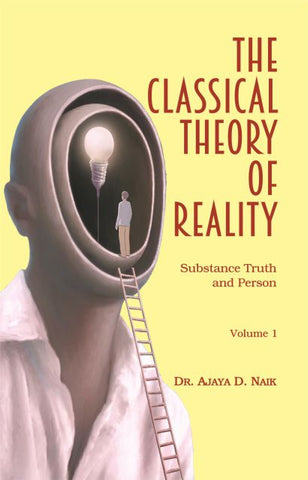
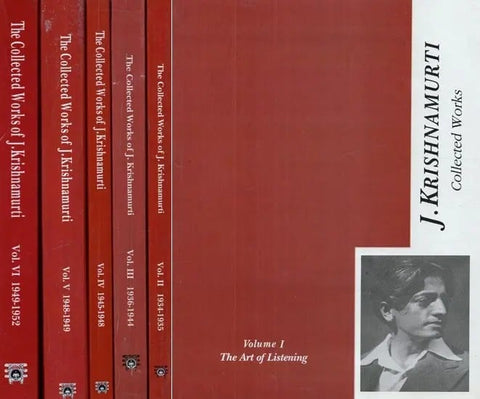

![A HISTORY OF INDIAN PHILOSOPHY [5 VOLUMES] by Surendranath Dasgupta](http://www.motilalbanarsidass.com/cdn/shop/products/HISTORYOFINDIANPHILOSOPHY_large.jpg?v=1675238163)
